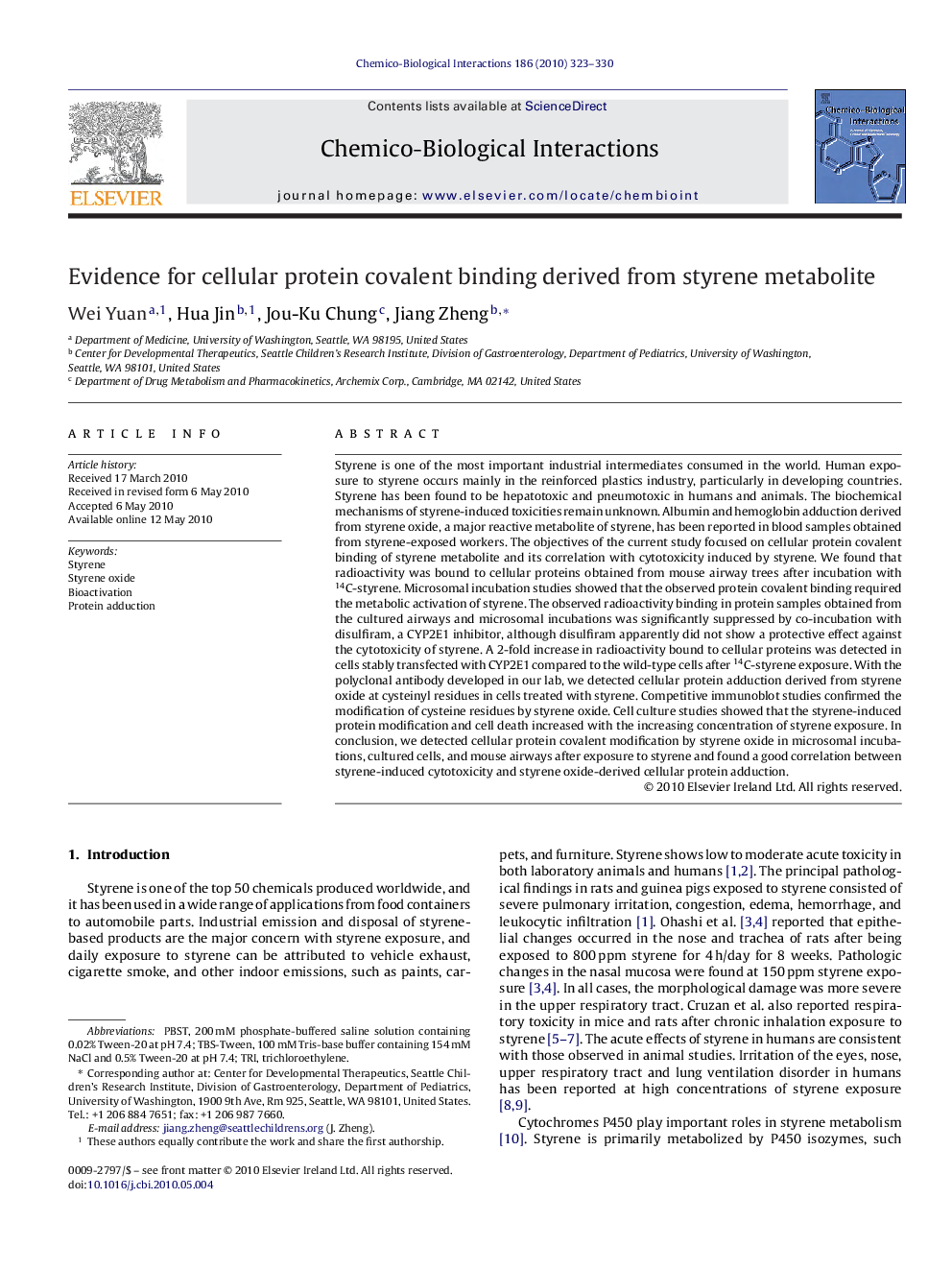| کد مقاله | کد نشریه | سال انتشار | مقاله انگلیسی | نسخه تمام متن |
|---|---|---|---|---|
| 2581103 | 1130173 | 2010 | 8 صفحه PDF | دانلود رایگان |

Styrene is one of the most important industrial intermediates consumed in the world. Human exposure to styrene occurs mainly in the reinforced plastics industry, particularly in developing countries. Styrene has been found to be hepatotoxic and pneumotoxic in humans and animals. The biochemical mechanisms of styrene-induced toxicities remain unknown. Albumin and hemoglobin adduction derived from styrene oxide, a major reactive metabolite of styrene, has been reported in blood samples obtained from styrene-exposed workers. The objectives of the current study focused on cellular protein covalent binding of styrene metabolite and its correlation with cytotoxicity induced by styrene. We found that radioactivity was bound to cellular proteins obtained from mouse airway trees after incubation with 14C-styrene. Microsomal incubation studies showed that the observed protein covalent binding required the metabolic activation of styrene. The observed radioactivity binding in protein samples obtained from the cultured airways and microsomal incubations was significantly suppressed by co-incubation with disulfiram, a CYP2E1 inhibitor, although disulfiram apparently did not show a protective effect against the cytotoxicity of styrene. A 2-fold increase in radioactivity bound to cellular proteins was detected in cells stably transfected with CYP2E1 compared to the wild-type cells after 14C-styrene exposure. With the polyclonal antibody developed in our lab, we detected cellular protein adduction derived from styrene oxide at cysteinyl residues in cells treated with styrene. Competitive immunoblot studies confirmed the modification of cysteine residues by styrene oxide. Cell culture studies showed that the styrene-induced protein modification and cell death increased with the increasing concentration of styrene exposure. In conclusion, we detected cellular protein covalent modification by styrene oxide in microsomal incubations, cultured cells, and mouse airways after exposure to styrene and found a good correlation between styrene-induced cytotoxicity and styrene oxide-derived cellular protein adduction.
Journal: Chemico-Biological Interactions - Volume 186, Issue 3, 5 August 2010, Pages 323–330